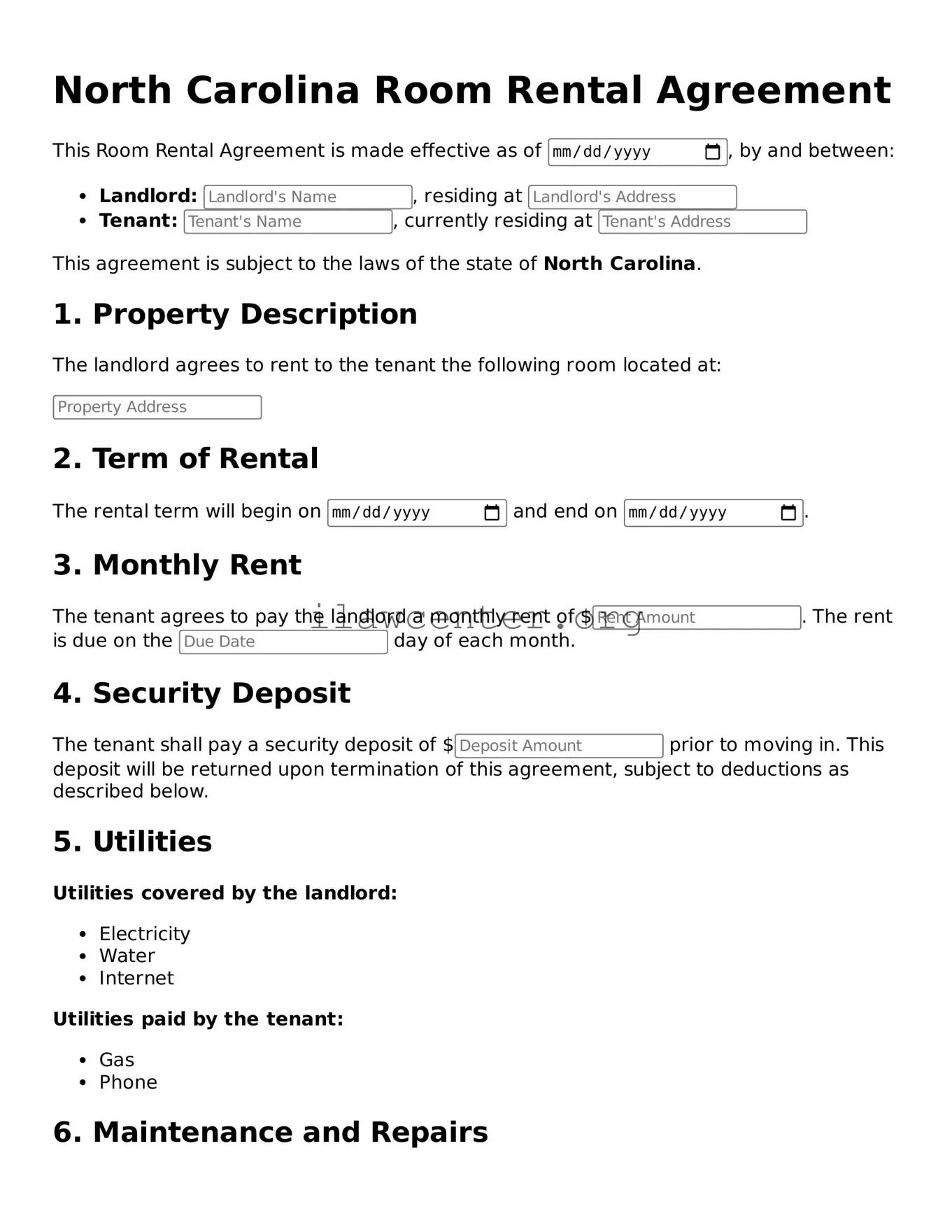Instructions on Utilizing North Carolina Room Rental Agreement
Once you have the North Carolina Room Rental Agreement form, having a clear understanding of what to do next can help streamline the process. Properly filling out the form ensures that both the landlord and tenant have a mutual understanding of the rental terms. Follow the step-by-step instructions below to complete the form effectively.
- Obtain the Form: Acquire the Room Rental Agreement form from a reliable source, which could be your landlord, a legal office, or an online legal document provider.
- Read the Instructions: Familiarize yourself with any specific instructions that come with the form to understand what information is required.
- Fill in Tenant Information: Enter the tenant's full name, contact information, and any additional details requested in the designated spaces.
- Fill in Landlord Information: Provide the landlord’s name and contact details, ensuring accuracy in this section.
- Property Details: Clearly describe the rental property, including the address, property type, and any relevant unit number.
- Rental Terms: Specify the rental amount, payment frequency, start and end dates of the rental, and any security deposit requirements.
- Utilities and Amenities: Indicate which utilities are included in the rental agreement or if the tenant is responsible for them.
- Signatures: Ensure that both parties sign and date the agreement to confirm acceptance of the terms.
- Keep Copies: Make copies of the completed form for both the landlord and tenant for future reference.
